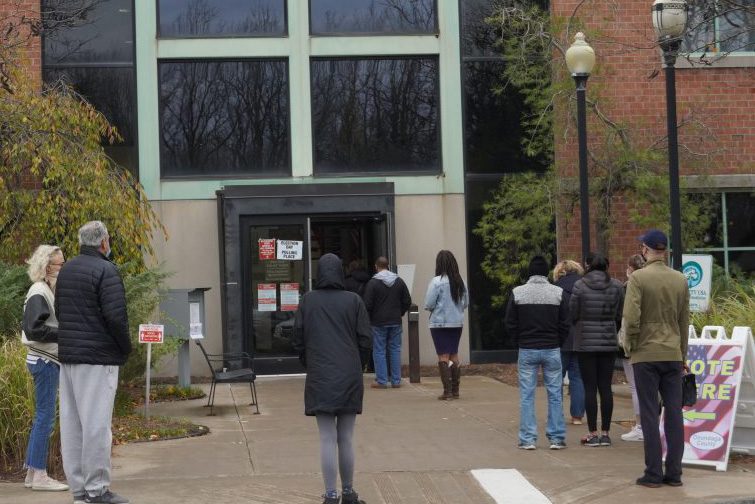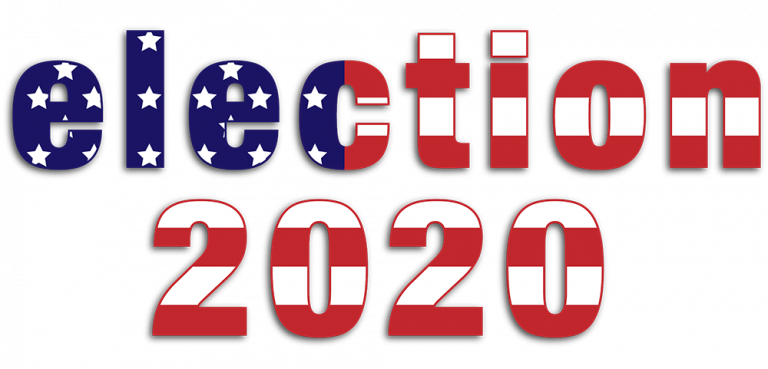Facebook founder’s grant helps fund election in Onondaga County
Facebook founder's grant helps fund election

The Onondaga County Board of Elections received a quarter-million-dollar private grant this October to offset the added cost of running an election during a pandemic.
The $280,696 grant was awarded by the Center for Technology and Civic Life, a non-profit that received a $250 million donation from Mark Zuckerberg this September to start the nationwide election grant program.
“We will definitely be spending all of that $280,000,” said Dustin Czarny, one of the Elections Commissioners for Onondaga County.

Czarny said that the board of elections is “absolutely” over their $3.3 million-dollar allocated budget for this year. The grant was awarded at a time when the county is attempting to close a $60 million-dollar gap in funding due to decreased sales tax revenue in the wake of COVID-19.
The Center for Technology and Civic Life has disbursed over 2,500 grants throughout 46 states and Washington D.C. ahead of the 2020 general election, according to the organization. In 2018, the CTCL reported just under $1.5 million in revenue, a small fraction of Zuckerberg’s donation this year.
The Onondaga commissioners heard about the CTCL grant in early October, according to Czarny, and they applied within days. Within a week, they had the grant money in hand. The Onondaga County Legislature voted unanimously at their October session to allow the elections board to spend the grant as they saw fit. Czarny said that they plan to use the funds to offset the cost of early voting centers, mail-in voting and extra staffing.
“Early voting turnout and mail-in ballot requests this year are beyond every measure,” Czarny said. “There is no comparison to past years.”
Just under 60,000 people voted in person at early voting sites this cycle, compared to just over 8,000 in 2018. This is the first presidential election where voters could cast a vote early in New York State. Last Monday, the board of elections decided to extend early voting hours over the weekend to accommodate added demand. The county has also received more than 40,000 absentee ballots as of Saturday and Czarny expects to receive 20,000 more in the coming days.
Despite this higher demand, federal assistance to run the election has dried up according to Czarny. The elections board received $61,000 in June as part of the federal CARES Act, which allocated $400 million nationwide to help local jurisdictions run elections. Czarny said all that money was used during the primaries. Discussions about another round of federal election grants stalled this October.
Counting all of the additional absentee ballots is particularly time-consuming because signatures need to be checked against the county’s record, said Czarny. In order to meet this higher demand, more poll workers are needed.
Tanya Holiday is one of those poll workers. This year was the first year she volunteered to check people in at the polls, and she was called to the Camillus fire station on Saturday from 10:00 A.M. to 6:00 P.M. She plans to work the polls at West Hill High School on Tuesday as well.
“We all need to come out and let our voices be spoken through our vote,” Holiday said. “Anything I can do to help encourage that is what I like to give.”
Holiday said that she enjoyed checking people in and the set-up allowed for proper social distancing within the polling centers. Plenty of hand sanitizer and disinfectant was made available throughout the site, Holiday said.
She said she was concerned for people with disabilities, who had to wait outside in the rain before being allowed inside. She said she also wished that the polls had more staff, especially because of the higher turnouts for early voting this year.
First-time voters, Madison Goodman and Rachel Nazak, lined up Sunday at the Dewitt Town Hall to vote early. They are both students at SUNY-ESF, and they decided to vote early because they saw the long lines throughout the week when they drove past the town hall.
Despite the crowd of about 50 people lined up outside the site, the two friends were not worried about COVID-19.
“I feel completely safe,” Goodman said.
“I’m not worried about it,” Nazak said.
They waited in line for just over 10 minutes before being called to vote. An election inspector milled about the line answering voter’s questions. Everyone wore masks.
“It is great to see people taking advantage of this opportunity to vote early,” Czarny said.





